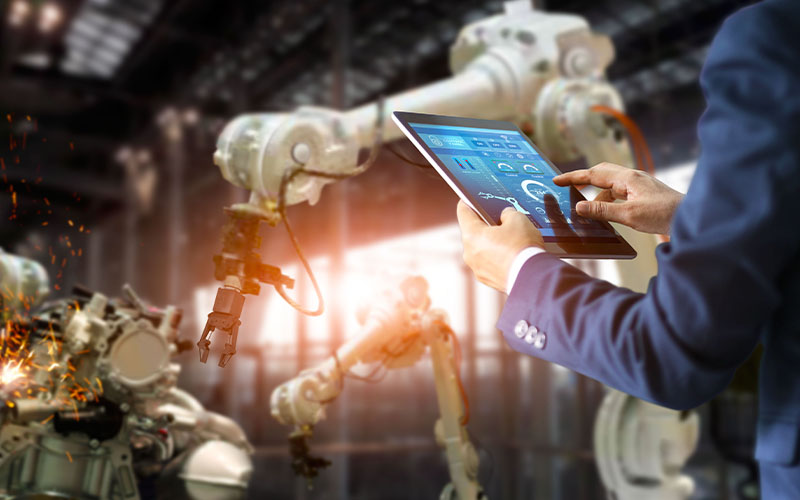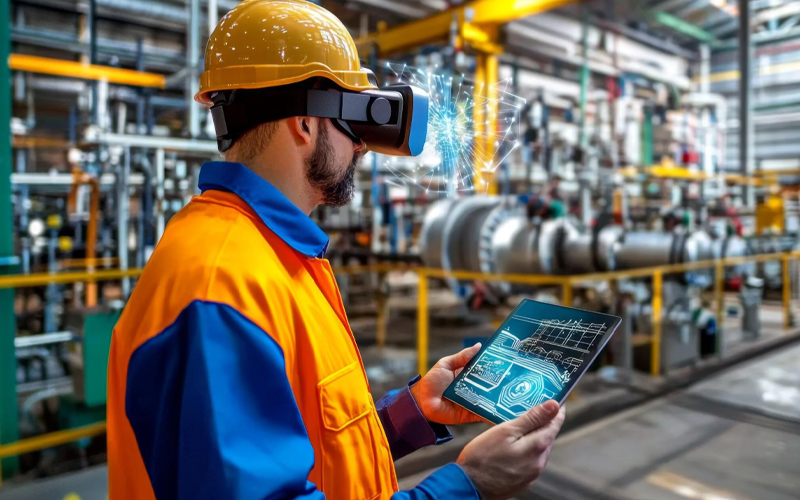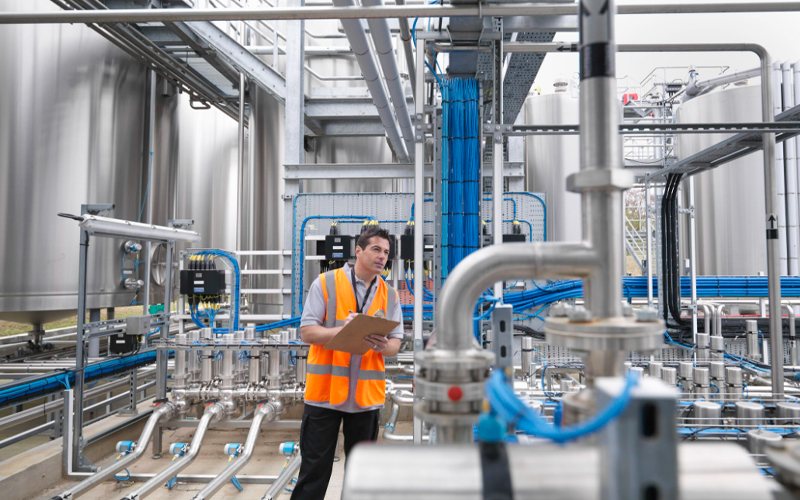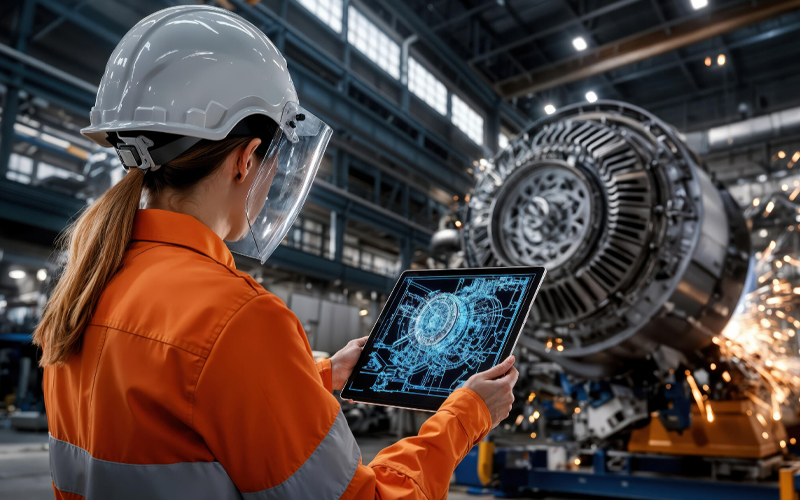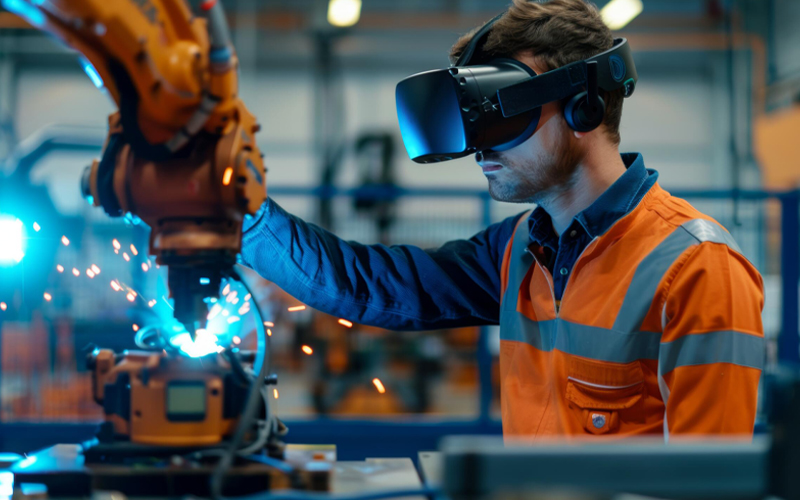Integrating artificial intelligence (AI) in the manufacturing sector is revolutionising engineering support services, optimising efficiency, reducing operational costs, and fostering innovation.
Engineering support services play a critical role in ensuring the seamless operation and efficiency of the manufacturing process. By incorporating AI, manufacturers can automate routine tasks, perform real-time data analysis, and enhance decision-making capabilities.
Additionally, AI-driven automation significantly advances engineering support services by minimising downtime, optimising resource allocation, and enabling predictive maintenance.
Leveraging AI in manufacturing not only enhances operational agility but also drives continuous improvement and innovation across the manufacturing landscape.
This technological evolution is modernising the overall traditional engineering methodologies, allowing manufacturers to achieve unprecedented efficiency, innovation, and competitive advantage.
The role of AI in engineering support services
Engineering support services are crucial for maintaining the integrity and efficiency of manufacturing operations. The advent of artificial intelligence in the manufacturing sector encompasses a range of advanced technologies that enable machines to perform tasks that traditionally require human intervention. The key applications of AI in this context include:
Product design and development
AI revolutionises product design through generative design algorithms that autonomously generate multiple design iterations based on parameters such as material constraints and performance metrics. With the support of finite element analysis (FEA), AI improves simulation accuracy while reducing computational time for analysis tasks.
Additionally, deep convolutional neural networks (DCNN) with transfer learning for defect detection (TLDD) are used to enhance accuracy. Computational fluid dynamics (CFD) with reduced-order models (ROM) help accelerate simulation convergence.
Process optimisation
AI technologies optimise manufacturing processes through machine learning (ML) algorithms that analyse real-time production data for dynamic scheduling and demand forecasting.
The industrial Internet of Things (IIoT) enables continuous KPI monitoring, while predictive maintenance leverages anomaly detection to minimise the downtime.
Digital twins simulate potential bottlenecks in production, while robotic process automation (RPA) streamlines workflows, enhancing overall operational efficiency.
Predictive maintenance
Predictive maintenance uses ML algorithms and IoT-enabled sensor networks for high-frequency data acquisition and real-time anomaly detection.
By applying predictive analytics and statistical modelling, AI identifies failure patterns, extending the mean time between failures (MTBF) of critical assets and optimising maintenance costs through early fault detection and degradation trend analysis.
This proactive approach extends equipment lifespan and significantly reduces maintenance costs while optimising overall equipment effectiveness (OEE).
Supply chain management
AI-driven optimisation enhances supply chain efficiency by leveraging ML algorithms to analyse historical and real-time data.
These algorithms predict demand trends and optimise inventory levels using predictive analytics and demand forecasting techniques.
By implementing sequential pattern mining (SPM) and Markov decision process (MDP) pattern recognition techniques, manufacturers can efficiently manage safety stock, prevent overstocking or stockouts, and dynamically adjust reorder points.
Robotics and automation
The integration of artificial intelligence in business has transformed assembly lines.
Advanced robotic systems leverage computer vision neural networks (CVNN) and deep reinforcement learning (DRL) algorithms for real-time trajectory optimisation via inverse kinematics.
These advanced-robots execute complex tasks with high precision, employing sensor fusion and real-time data processing.
Their adaptive control and intelligent motion planning enhance productivity, enabling mass customisation without compromising operational efficiency.
Integrating AI into manufacturing workflows
Integrating AI into existing manufacturing workflows requires a systematic approach:
- Data architecture and optimisation
- AI model selection and development
- Model training and validation
- Continuous learning mechanisms
- User training and change management strategies
Design a scalable data architecture leveraging cloud and edge computing for real-time data ingestion from IoT devices and sensors, ensuring optimal efficiency, low latency, and robust data security.
Employ supervised and unsupervised ML algorithms, such as Random Forests and Convolutional Neural Networks (CNNs), tailored for applications like predictive maintenance, anomaly detection in quality control, and generative design.
Leverage historical operational data to train AI models, utilizing techniques such as k-fold cross-validation to ensure robustness. Additionally, use performance metrics like precision, recall, and F1-score to validate model accuracy in predicting equipment failures or identifying quality defects.
Establish continuous feedback loops for AI systems to enable real-time adaptation to new data inputs and operational changes. Leverage advanced deep reinforcement learning techniques, such as Q-learning and policy gradient methods, to optimise decision-making processes.
Implement comprehensive training programmes emphasising human-AI collaboration to ensure staff proficiency with AI tools. Utilise change management frameworks, such as Kotter's 8-Step Process, to drive cultural shifts toward data-driven decision-making.
How can Infosys BPM help?
As manufacturers navigate digital transformation, Infosys BPM stands at the forefront of artificial intelligence engineering. By integrating advanced AI into manufacturing processes, Infosys BPM delivers state-of-the-art solutions that enhance productivity, reduce costs, and drive innovation across engineering disciplines.
Know more about Infosys BPM engineering support services



